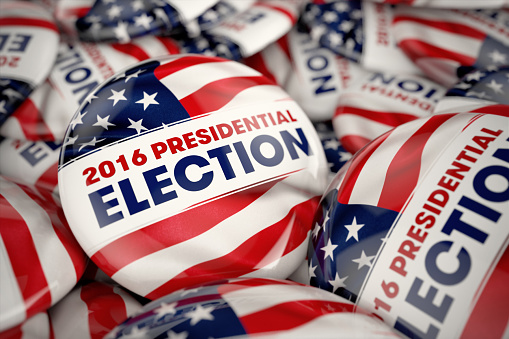
©creisinger/ISTOCK/THINKSTOCK
CFO worries about the tenor of the current global political climate -- especially tied to U.S. election worries -- skyrocketed among senior-level financial executives with concerns particularly focused on the impact on international trade and tax policy.
Approximately 57 percent of CFOs overall say the U.S. presidential election is affecting their planning, according to Deloitte’s CFO Signals. Though, predictably, there were industry differences, all the individual industries had at least 75 percent of CFOs saying that they expected a significant impact from the elections.
Economic trends and geopolitics are having a substantial impact on many companies’ planning. CFOs were asked specifically about the macroeconomic factors affecting their business planning and low interest rates and a strong dollar came out on top by a wide margin. About 90 percent of CFOs say low interest rates are having at least some effect on their business planning and just over 80 percent say a strong U.S. dollar is affecting their planning.
Following capital and currency concerns was the slowing economies of Europe and China. Nearly 70 percent of CFOs say slow European growth is affecting their planning.
While CFOs are worried about the potential economic impact of geopolitics, on a positive note both capital spending growth expectations and revenue growth expectations are up slightly from last quarter, while domestic hiring growth expectations were up significantly from last quarter (1.1 percent to 2.3 percent).
Patricia Buckley, Managing Director, Economic Policy and Analysis at Deloitte Services LP focused on two big takeaways.
The first was the strong expectations for domestic hiring. “The consumer has been the savior of the U.S. economy over recent quarters and job growth this year is, so far, going at a pretty good pace. Overall, we’re on pace to create over 2 million jobs in 2016. That bodes well for consumer spending.”
The second issue Buckley found interesting was CFOs expectation of a rise in capital spending. After two quarters of contraction, the survey results saw a very small increase in business investment in the second quarter. However, investment in equipment remains negative. Buckley sees this as especially problematic. “If I had to point to one danger for the U.S. economy going forward, it’s very low levels of productivity growth. To have productivity growth, we’re going to need businesses investing in the most advanced technology. On the plus side, though, we have been investing quite a bit in intellectual property.”
Deloitte’s CFO Signals, published each quarter, examines the thinking and actions of U.S. CFOs on topics such as the presidential election and growth expectations around capital spending and domestic hiring. Of the 122 CFOs surveyed, 73 percent are from public companies and 80 percent are from companies with more than $1B in annual revenue.